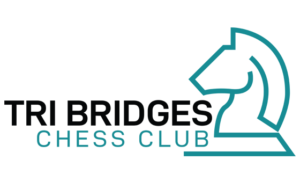Brief History of TBCC
In 2013 Tri-Bridges Chess Club began to meet in Malvern at the Aloha Mind Math Center from 7 to 9. I had a student whose parents owned the site and wanted a club for their kid to play in. We met at their site and checked it out and it was a good fit for the club and so we began that February. The club was named Tri-Bridges as we were next to three bridges and Harry Potter was quite popular and it made me think of the Tri-Wizards Cup story.
We began very slowly. Though club ran from 7 to 9, if no one showed up by 8 or 8:15, which did happen, then I would go home figuring that no one was coming. That summer I used the site to run the State Blitz championship and the State Championship (we didn’t even have a USChess affiliate yet, so we had to use another affiliates information.) This brought us a little bit of attention and we began to at least have 5 to 10 players each week. By the time we left the site a while later (the Math Center needed another night for classes and was no longer free), we would occasionally top 20 kids and routinely had attendance in the teens.
We had our own affiliate with US Chess by then and began a long-term arrangement where we would run events at one church and the free club at another church, both in Exton, PA. Over time we have run well over 100 events and have met almost every Tuesday night from 6:30 to 8:30. Recently, we have moved all of our meetings, which now regularly have 25 – 30 kids, and tournaments to 666 Exton Commons, Exton, PA. We have also expaded to included Friday nights as we get ready for the PA State Scholastic Championship in March, and have numerous former attendees who help run tournaments and teach small groups.

